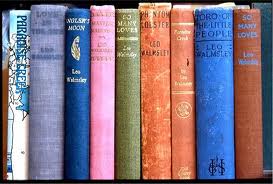Non-Fiction
Read it
I haven't ready anything previously be Anirudh Dutta, but with a title and subject matter as this book has, I was very interested in what he has to say.
Violence against women, social attitudes, and change are big topics for any country. India is a country where these topics are bigger than most. But they need to be addressed on a continual basis and Dutta attempts to do just that.
Most people remember the Nirbhaya case that happened in 2012. It was horrific and happened right after I moved to India. That case has created a pre and post Nirbhaya environment in people's thinking about sexual assault, rape, and respecting women. One would think that with all the coverage this case got, people and the government would have been galvanized into action. Unfortunately, that hasn't been the case. It has opened up awareness of a broad scale struggle between those who wish to drag India into a modern mindset, and those who continue to employ brutal methods to continue suppressing development, modernity and women.
Sexual assault and atrocities don't spring out of nowhere. Dutta gets to the heart of the matter by identifying some of the long-standing underpinning ideas that contribute to the negative attitudes and disrespect for women. Dutta sets out to understand if the condition of women is at all improving by measuring some metrics and connecting with both the young women in different settings and communities and their mothers to see what has changed.
I absolutely think that Dutta's objective is important, and needs to be done. Unless the social attitudes that have created such a dire circumstance for women change, they will continue to suffer. He also delves into some of the different NGO's that are involved with raising women and why they are necessary.
Dutta's thesis is hopeful. He does make a very good point that the social attitudes are indeed changing, and that the younger generation of women is indeed aiming higher and feeling freer than ever. However, it seems a bit too simplistic to me. I understand that this topic is huge, and to factor in every single metric for change would result in an epic no one would write, none the less read, I think this gives a false sense of hope and optimism.
The harsh truth, is that while life is changing for some women, and some women feel freer and more empowered, overall attitudes and the level of conservatism has not swung as far as Dutta would like to portray. Not only have assaults and sexual violations increased in visibility for the public in the last few years, the response to these events continues to be disgustingly lukewarm and ineffective. India has miles and miles to go in order just to stop these tragic events for women, leave alone see and treat them as equal to men.
Read this for it's hopeful tone. It's a well researched and written book, but don't be fooled by false hopes.
~Becky~
